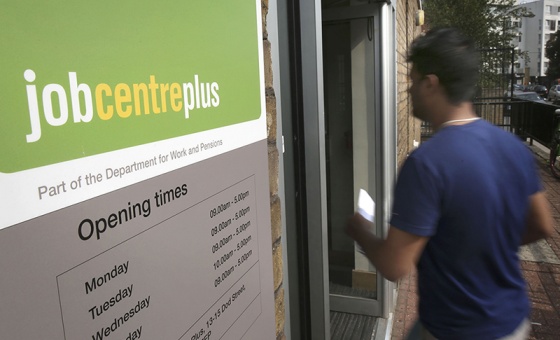This is the last article you can read this month
You can read more article this month
You can read more articles this month
Sorry your limit is up for this month
Reset on:
Please help support the Morning Star by subscribing here
A TRANSITIONAL council has been sworn in to pick Haiti’s new prime minister and cabinet and prepare for eventual presidential elections in an effort to curb rampant gang violence.
Outgoing premier Ariel Henry, who has been locked out of the country for the past couple of months by the violence, cleared the way for the transition by presenting his resignation on Thursday in a letter signed in Los Angeles.
Mr Henry’s outgoing cabinet chose Economy and Finance Minister Michel Patrick Boisvert as interim prime minister in the meantime. It was not clear when the transitional council would name its own choice for the post.
The council was sworn in at the National Palace in the capital Port-au-Prince as sporadic gunfire erupted nearby, prompting some officials to look around nervously.
Speaking in the prime minister’s office hours later in the Petion-Ville suburb, Mr Boisvert said: “After long months of debate … a solution has been found. Today is an important day in the life of our dear republic.”
The transitional council’s members, mostly representatives of various political parties, stood behind him as he addressed top police and military officials as well as ambassadors and well-known politicians.
Mr Boisvert called the transitional council a “Haitian solution” and he wished them success, adding: “You are to lead the country to peace, to economic and social recovery, to sacred union, to participation.”
The council had been installed earlier in the day, more than a month after Caribbean leaders announced its creation following an emergency meeting to tackle Haiti’s spiralling crisis.
The nine-member body is expected to help set the agenda of a new cabinet. It will also appoint a provisional electoral commission and establish a national security council.
The council’s non-renewable mandate expires on February 7 2026, at which point a new president is due to be sworn in.
Council member Smith Augustin of EDE/RED, a party led by former prime minister Claude Joseph, said that gangs now control most of Port-au-Prince, tens of thousands of residents have been displaced by violence and more than 900 schools have been forced to close.
“The population of Port-au-Prince has literally been taken hostage,” she said.
At the United Nations, World Food Programme deputy executive director Carl Skau said that about five million people, about half the population, were suffering acute food insecurity, defined by the UN as “when a person’s inability to consume adequate food puts their lives or livelihoods in immediate danger.”











